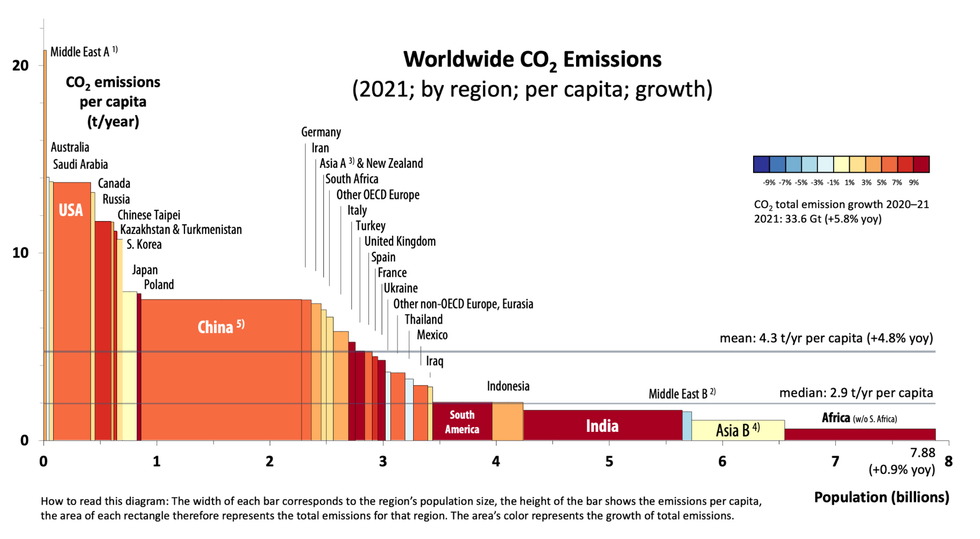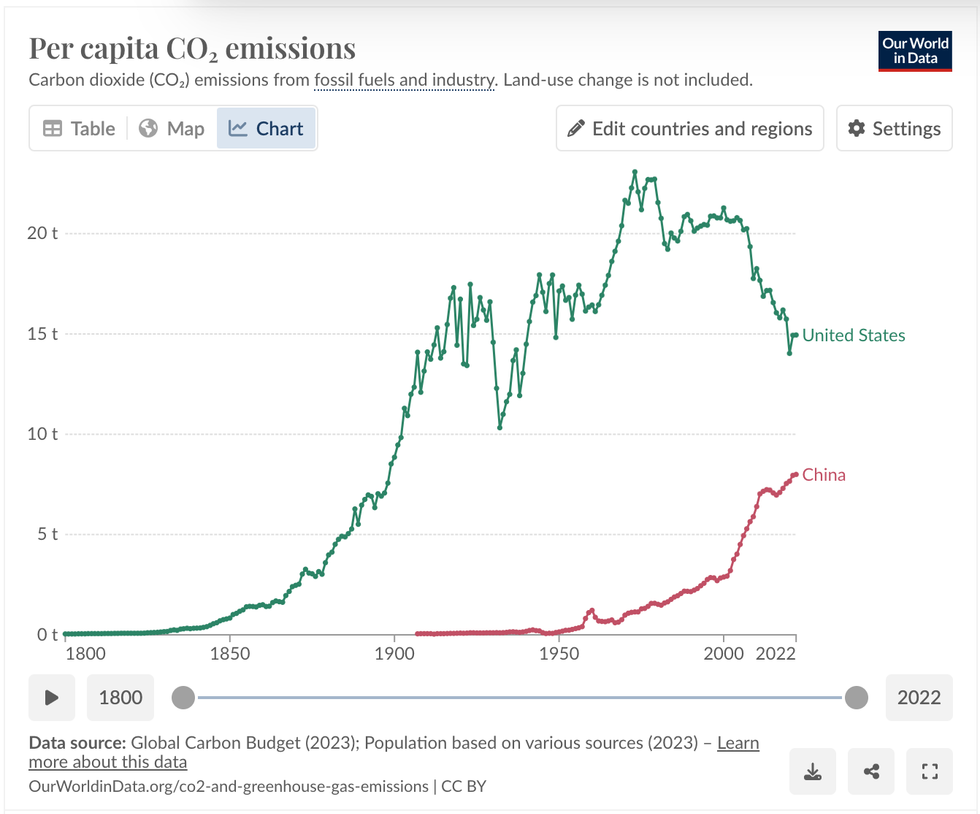As Biden Adviser Speaks at COP29, Green Groups Say Act Before Trump Takeover
"President Joe Biden must reject all pending LNG export permits and stop the expansion of fossil fuels."
As the U.S. senior adviser to the president for international climate policy addressed the United Nations summit in Azerbaijan on Monday, green groups urged the outgoing Democratic administration to do whatever it can to tackle the global crisis before Republicans seize control of the White House and likely both chambers of Congress.
"I want to address tonight a topic that is on everyone's mind—the U.S. election," John Podesta, President Joe Biden's adviser, told the crowd in Baku on the first day of the United Nations Climate Change Conference (COP29), less than a week after President-elect Donald Trump defeated Vice President Kamala Harris.
Although votes are still being counted, Republicans have secured a majority in the U.S. Senate and are on track to retain control of the House of Representatives—paving the way for Trump's plans to roll back the Biden-Harris administration's progress on the climate emergency and "drill, baby, drill," which would lead to a surge in planet-heating pollution.
"Podesta's speech must be followed by swift action to limit U.S. fossil fuel expansion and achieve a strong COP29 outcome."
"For those of us dedicated to climate action, last week's outcome in the United States is obviously bitterly disappointing," Podesta acknowledged, "particularly because of the unprecedented resources and ambition President Biden and Vice President Harris brought to the climate fight."
Noting that Biden pledged to halve emissions this decade, rejoined the Paris agreement, signed the Inflation Reduction Act (IRA) and the Bipartisan Infrastructure Law, and promised $11 billion in international climate funds, Podesta warned that "the next administration will try to take a U-turn and reverse much of this progress."
"As President Biden said in the Rose Garden last week, setbacks are unavoidable, but giving up is unforgivable. This is not the end of our fight for a cleaner, safer planet. Facts are still facts. Science is still science," he continued. "This fight is bigger than one election, one political cycle, in one country. This fight is bigger still."
"We can and will make real progress on the backs of our climate-committed states and cities, our innovators, our companies, and our citizens, especially young people, who understand more than most that climate change poses an existential threat that we cannot afford to ignore," he added. "Failure or apathy is simply not an option."
Responding to the envoy's remarks in a Monday statement, Collin Rees, United States program manager at Oil Change International, said that "if John Podesta and President Joe Biden are committed to doing everything possible to continue climate progress despite Donald Trump's reelection, this moment demands a bold agenda that goes beyond locking in clean energy gains and takes real action toward a just transition off fossil fuels."
"There is no shortage of critical work to be done before Biden leaves office," Rees argued. "Here at COP29, the United States must support a new, transformative global finance goal in which rich countries pay their fair share in high-quality, grant-based finance and work to submit a Paris-aligned nationally determined contribution committing to do its fair share of climate action and phase out fossil fuels."
In the United States, Rees argued, Biden must "finalize studies on the dangerous impacts" of new liquefied natural gas exports, "reject deadly projects like the Dakota Access oil pipeline and pending LNG facilities in the Gulf South," and urge Congress to block the latest attempt by outgoing Sen. Joe Manchin (I-W.Va.) "to destroy bedrock environmental protections."
Looking toward next week's Organization for Economic Cooperation and Development (OECD) meeting, Rees said that "Biden's administration must support a global agreement to end export credit finance for oil and gas projects, a process which could end tens of billions of dollars in international finance for fossil fuels every year. This agreement would limit the global climate damages Trump and his fossil fuel cronies are able to perpetrate."
"Podesta's speech must be followed by swift action to limit U.S. fossil fuel expansion and achieve a strong COP29 outcome," he stressed. Leaders at other climate organizations—who have often argued that Biden hasn't gone far enough to tackle the fossil fuel-driven crisis—issued similar demands on Monday.
Emphasizing that "climate diplomacy on a boiling planet doesn't stop for a climate denier," Ben Goloff, senior campaigner at the Center for Biological Diversity's Climate Law Institute, called on Biden officials to "use the next two months to set up a bulwark of protections and secure their climate legacy."
"Beyond urgently getting IRA money out the door, John Podesta must commit the U.S.'s fair share of global climate finance and announce an ambitious NDC climate target," Goloff said, referring to nationally determined contributions for the Paris agreement.
Biden, he added, "has to make good on last year's agreement to transition away from fossil fuels by rejecting pending mega-polluting project," and "should also act quickly to fill all federal judicial vacancies as a wall of defense to Trump's rampage of legal attacks."
Jamie Minden, acting executive director of the youth-led movement Zero Hour, also declared that "before Trump takes office, President Joe Biden must reject all pending LNG export permits and stop the expansion of fossil fuels."
"Our climate is on the brink of collapse, and it is sheer madness that politicians continue to expand and subsidize deadly fossil fuels," Minden said. "Young people are fighting for our planet because we are facing the worst consequences of the unrelenting greed of these selfish politicians."




